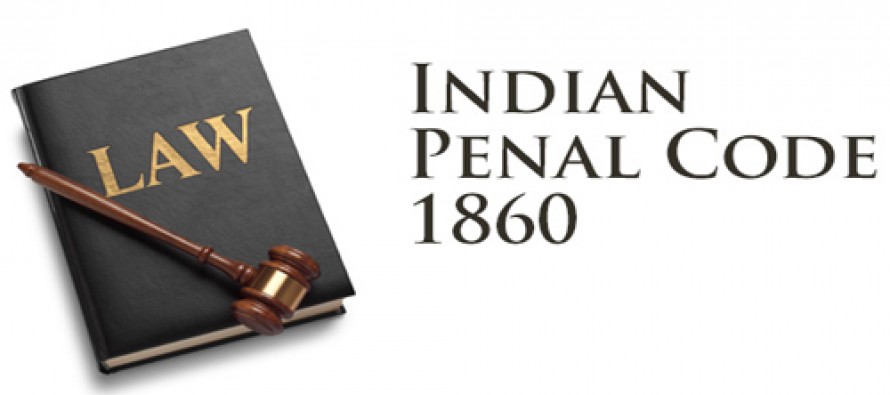Legal Provisions of Section 86 of Indian Penal Code, 1860.
Offence requiring a particular intent or knowledge committed by one who is intoxicated:
ADVERTISEMENTS:
This section should be read together with section 85 of the Code. Whereas section 85 deals with the defence of intoxication, this section talks about matters relating to presumption in certain cases where the question of intoxication is involved. There are many sections in the Indian Penal Code wherein an accused can be held guilty only when a particular knowledge or intent is proved against him by the prosecution.
In such cases if it is proved that the accused had acted in a state of intoxication, it shall be presumed that he knew the consequences of his act in the same manner as if he had not been intoxicated unless he proves that the thing which intoxicated him was administered to him without his knowledge or against his will.
The section lays down the law regarding presumption of knowledge only and is silent about presumption of intention which in effect means that in such cases there is no presumption with regard to intention of the accused. Therefore, in such cases the particular intention against the accused is to be proved by the prosecution in the same manner as is done in the normal cases. Supposing A is charged with the offence of causing the murder of B, and A pleads the defence of intoxication under section 85 of the Code.
Here, if the prosecution wishes to get A convicted of the murder on the basis of knowledge as given under clause 4 of section 300, the Court will deal with the case as if A had the same knowledge as he would have had if he had not been intoxicated, unless A proves that the thing which intoxicated him was administered to him without his knowledge or against his will.
ADVERTISEMENTS:
On the other hand, in this illustration, if the prosecution wishes to get A convicted of the murder on the basis of A’s intention to cause death of В under clause (1) of section 300, there is no presumption as in the case of knowledge, and the prosecution will have to prove the charge against A, when A pleads the defence of intoxication under section 85, in the same manner as is done in other such cases of murder.
The expression ‘without his knowledge’ or ‘against his will’ has the same meaning as in section 85 of the Code. The former indicates an element of fraud by others, or ignorance or absence of knowledge about the intoxicant on the part of the accused, while the latter presupposes an element of coercion or force used against the accused.
In Basdev v. State, the accused asked the deceased a boy of about sixteen years of age, in the course of attending a wedding lunch, to step aside a little so that he could have a convenient seat. When the deceased did not move aside, the accused shot him dead by a pistol. The Supreme Court, while rejecting the plea of the defence that the conviction of murder may be altered to culpable homicide not amounting to murder, observed that: (i) the defence of understanding of the nature and consequences of an act, whether produced by drunkenness or otherwise, is a defence to the crime charged; (ii) the evidence of drunkenness which renders the accused incapable of forming the specific intent essential to constitute the crime, should be taken into consideration with other proved facts in order to determine whether or not he had this intent: and (iii) the evidence of drunkenness falling short of proved incapacity in the accused to form the intent necessary to constitute the crime, and merely establishing that his mind was affected by drink so that he more readily gave way to some violent passion, does not rebut the presumption that a man intends the natural consequences of his acts. In Sarthi v. Stated the three drunken accused first roughed up the drunken deceased and then strangled him to unconsciousness and hanged him from the ceiling without ascertaining as to whether he was dead or alive at that time. The Court held the accused persons liable for culpable homicide not amounting to murder on the ground that even though they were under the influence of intoxication at the time of committing the act, they knew that their act was likely to cause death as stated under section 299 (3) and punishable under section 304, Part II of the Code.
In Enrique F. Rio v. State, the accused, in a state of extreme intoxication, inflicted a fatal injury in the abdomen of his friend. The Court held that the prosecution failed to prove intention on the part of the accused to cause death, but he could be presumed to have knowledge of the consequences of his act under section 299 (3) punishable under section 304, Part II of the Code.
ADVERTISEMENTS:
In Babu Sadashiv Jadhav v. Stated the accused was drunk and had an exchange of hot words with his wife. In an angry mood he poured kerosene on his wife and set her on fire. Immediately thereafter, however, he started extinguishing the fire. The Court held that he intended to cause bodily injury which was likely to cause death under section 299(2) and sentenced him under section 304, Part I of the Code.
In Dasa Kandha v. State, the Court rejected the argument of the accused that he should be held guilty of culpable homicide not amounting to murder of his wife as he was drunk at the time of committing the crime as a result of which he could not form the necessary intent for committing murder. The Court observed that there is a presumption that a person intends the natural consequences of his act and the same had not been rebutted by the facts and circumstances of the case while the prosecution evidence had clearly proved the necessary intent.

